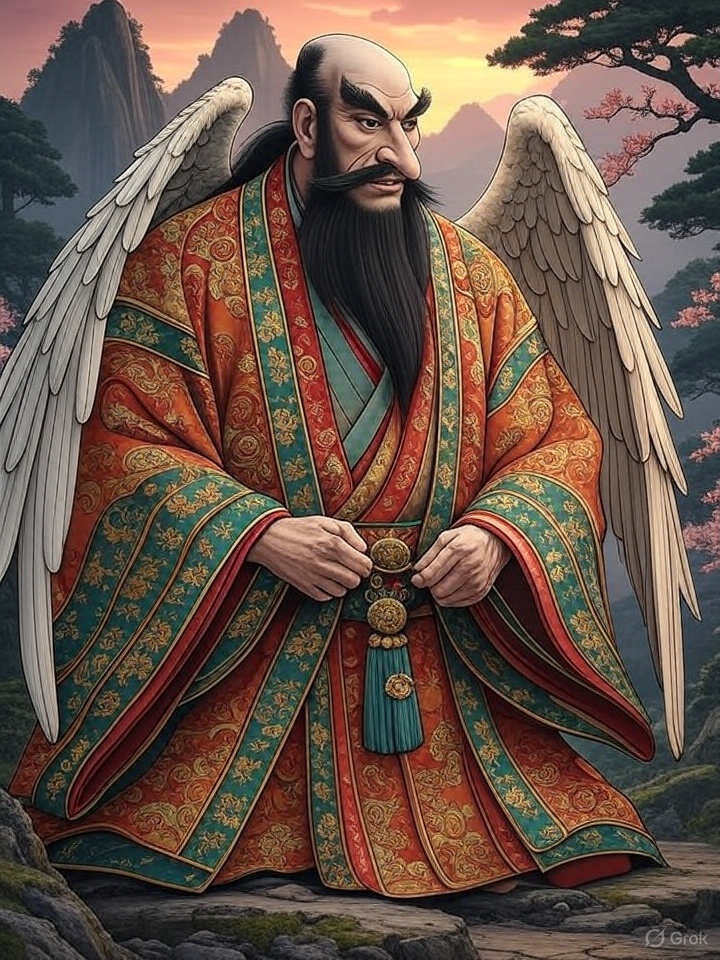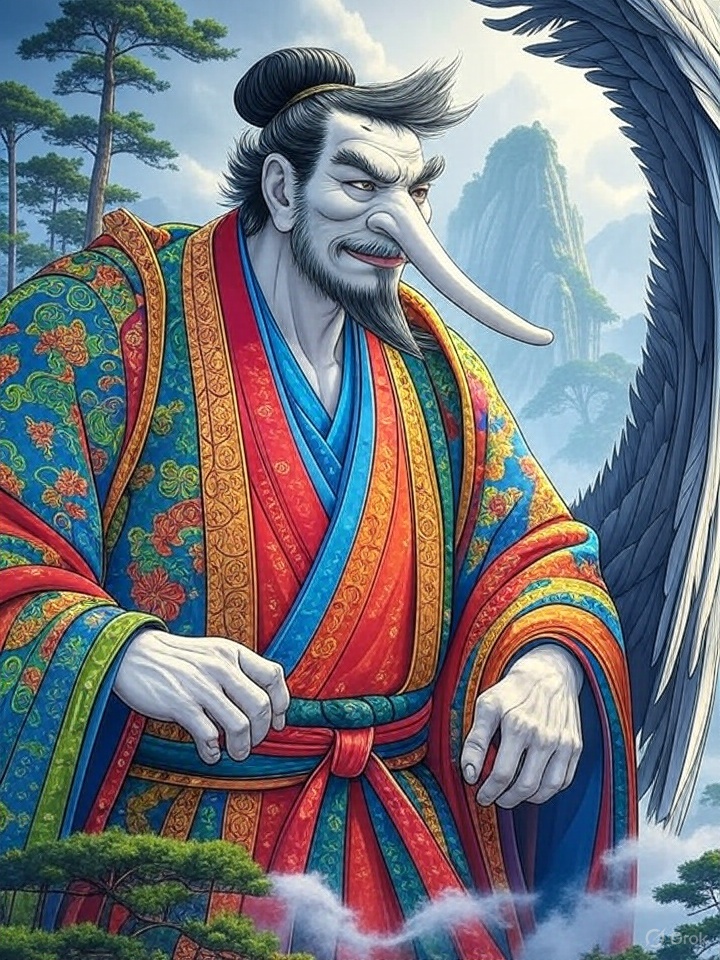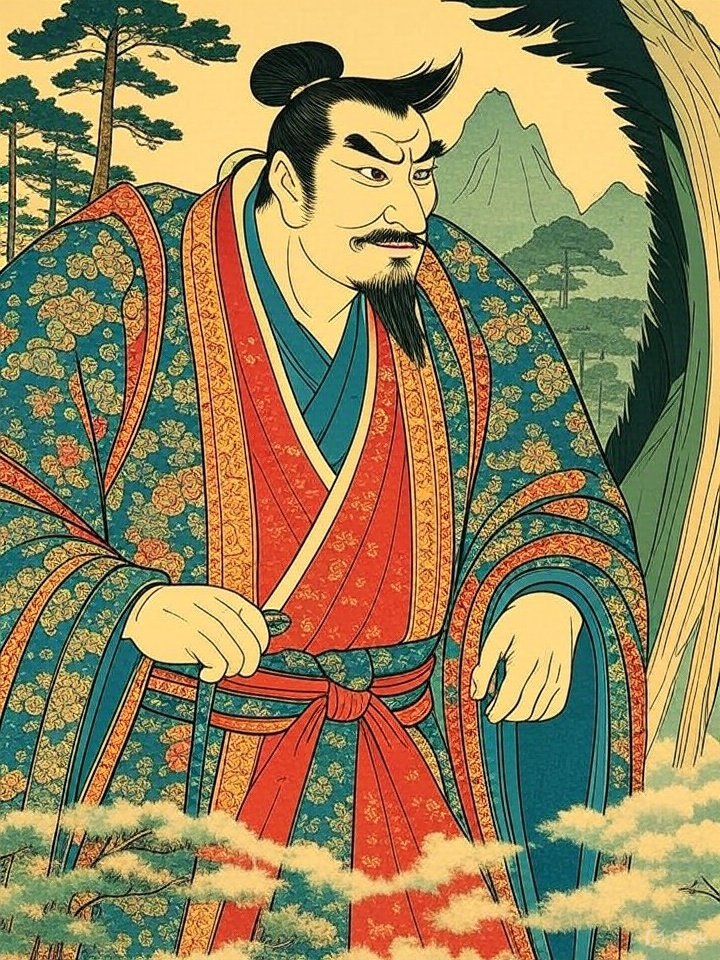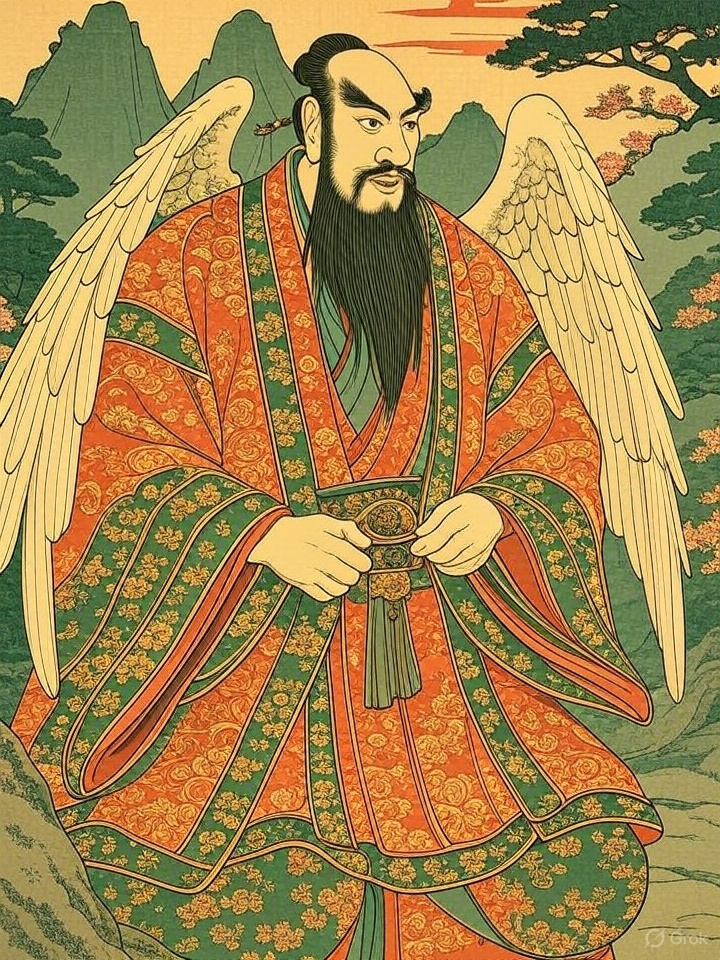Name Meaning
Daitengu (大天狗) means "Great Tengu." These high-ranking yokai are lords of the mountains, far more powerful and wise than the lesser kotengu. They are often portrayed as divine guardians or fearsome threats depending on the region.
- Daitengu = Great or elder tengu
Origin
- Rooted in ancient Japanese mountain worship and adapted through Buddhist mythology.
- Often seen on sacred mountains like Mt. Kurama or Mt. Hiei.
- Sometimes modeled after ascetic mountain monks (yamabushi).
Appearance
- Usually depicted with a long red nose, sharp eyes, and flowing robes.
- Carries a fan made of feathers or leaves (hauchiwa), symbolizing control over wind.
- Has wings or the power of flight, often seen descending from mountaintops.
Behavior & Myths
- Rules over lesser tengu and spirits from high mountain peaks.
- Interacts with monks, warriors, or travelers—sometimes offering trials or teachings.
- Known to stir windstorms, illusions, or fierce training to test humans.
Symbolism
- Represents mountain mysticism, ascetic power, and fierce independence.
- Seen as protectors of sacred nature or threats to those who trespass thoughtlessly.
- In modern culture, often revered as wise yet unpredictable spirits.



